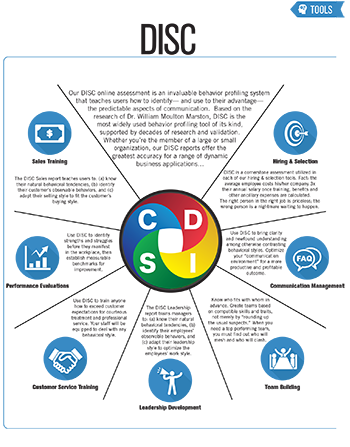 What if improving your own communications skills could transform your business?
What if improving your own communications skills could transform your business?
Recent research shows that 44 percent of business executives believe soft skills are the biggest part of the skill gap in this country. And even though nearly 75 percent of employers believe teamwork and collaboration are important, 39 percent of employees think that their organization doesn't offer enough collaboration.
It's clear that improving business communication skills throughout your business is something that executives and employees alike desire. But you can't help managers and employees improve their communication skills until you have improved your own.
Develop these 10 areas of communication and you’ll be well on your way to transforming not only yourself but your business.
1. The Art of Listening
The most important step is to improve your listening skills. However, most people – even business professionals – confuse "hearing" with "listening."
Here’s how to fix that: Try to focus on conversations. For example, if someone calls you on your work phone, pay exclusive attention to them rather than trying to fire off a few emails while you talk.
Write important things down as people say them and ask clarifying questions as needed. If you need to, set reminders about getting back to employees when they have a question or have requested a meeting. [quotesright]Paraphrase what the other person said, letting them know you heard and understood them. [/quotesright]
When the other person sees how much you care about them, you will have created an element of trust and rapport.
2. Collaborative Communication
We often think of collaboration as a separate skill from communication. However, one of the best ways to improve your business communications is through collaboration.
For example, try not to have too many "sit and get" presentations. Instead, use meetings as an opportunity to take questions, hear feedback, and tailor your message based on what people are saying.
This shows your employees that you value both their time and their feedback. The average worker will be much more motivated when they have an active voice than when they are sitting silently through a lecture.
3. Work on Nonverbal Communication
[quotes]Business communications are about more than what we say out loud. [/quotes]Communication at work also includes nonverbal communication. And you might be surprised at the mixed signals your own nonverbal communication is sending!
For example, failure to make eye contact when speaking with someone will make them think you don't care what they have to say. And folding your arms while someone speaks may make you look defensive or even angry.
If you slouch at your own desk, it sends a message that you are lazy and unmotivated. And if you don't respect someone's personal space at work, they will think you don't respect them.
 One of the foundational tools for improving communications is called DISC. It recognizes that each of us has a preferred way of communicating and being communicated with. DISC training enables you to quickly pick up the other person’s preferred style and adapt so you are communicating in the most effective way.
One of the foundational tools for improving communications is called DISC. It recognizes that each of us has a preferred way of communicating and being communicated with. DISC training enables you to quickly pick up the other person’s preferred style and adapt so you are communicating in the most effective way.
[sidebar]
Interested in learning more about DISC?
Simply send me an email asking for more information and we’ll send it right over. Brian Tracy USA: 877.433.6225 Email Me
[/sidebar]
In short, boosting your nonverbal communication skills will improve your overall workplace communication.
4. Standardize Formal Communications
If you are in a management position, it is a dangerous temptation to use informal language to "fit in" and come across like you're just one of the workers. We say "dangerous temptation" because you could end up offending another party or otherwise sending a confusing message.
For example, you may be tempted to include acronyms, emoticons, or emojis in an email. [quotesright]But these may mean different things to different groups, and your attempt to fit in may backfire. [/quotesright]
Ultimately, you should standardize formal communications at work. It keeps communication consistent and helps you set expectations for employees.
5. Become a Lifetime Learner
The big "rookie mistake" that managers tend to make is seeking a singular business communication solution. In other words, they think that they just need to read one guide or watch one video and instantly become a better communicator.
[quotes]In reality, communication is always evolving.[/quotes] If you want to keep your business communication skills sharp, you must become a lifetime learner.
While guides like ours are helpful, you should also read various business journals to stay up to date on everything from communication strategies to communication technology. And don't forget that a good business communication coach can help you every step of the way!
6. Better to Communicate Too Much than Too Little
Business managers and CEOs often focus on efficiency. There is an implicit hope that if we create the right KPIs and gather the right analytics, it will help us create the most efficient business.
However, workplace communication doesn't work like that. You shouldn't focus on saying as little as possible to be more efficient. [quotesright]In fact, the average manager needs to communicate much, much more than they actually do. [/quotesright]
Think of communicating on the job like the old children's game of Telephone. If you say something one time, then the message is going to be lost or confused before long. But if you repeatedly communicate important ideas, you improve the chances of people hearing and understanding what you have to say.
7. Send Specific Emails
When it comes to verbal communication, it is better to play it safe by communicating too much rather than too little. But there is one area of business communications where you need to be brief and specific: emails.
When the average worker gets an email from the boss, they will use the contents of that email as a "checklist" of things they need to do. And the last thing anybody needs in a checklist is irrelevant additional information.
Improving your workplace email starts by using subject lines that are brief and to the point. Inside the email, try to make paragraphs no longer than two or three sentences. These sentences should contain specific information, including what you need someone to work on, what the deadline is, and when you'll be checking in with them again.
Sending more specific emails is a real "win/win" for both you and your workers. That's because it saves you time writing longer messages and it saves them time reading irrelevant extra information.
8. Technology, Communication, and Collaboration
The COVID-19 pandemic was a serious disruption to businesses around the world. And as a result of the pandemic, many businesses adopted third-party communication tools. The big surprise was that these tools improved communications and are essential for fully remote businesses.
These technologies are evolving and best practices are emerging. And, like so many things today, they are not “one-size-fits-all,” but efficient tools you can use. [quotesright]However, they are not just for remote workers – they can help improve communication for in-person workplaces as well. [/quotesright]
Different tools work well for different needs. For example, Microsoft Teams and Zoom provide great ways for you and employees to collaborate on different projects together. And these digital collaboration tools are much better than having employees send hundreds of emails back and forth.
Your workplace may also benefit from a communication tool such as Slack. Slack gives employees a chance to communicate and collaborate in a less formal setting. And the social media-inspired design of Slack can help turn employees who may not physically see each other that often into a dedicated and motivated cohort.
9. Seek Frequent Feedback
The best businesses are ones that take feedback from workers often. And if you want to be the best kind of business leader, you need to frequently seek feedback in order to improve your communication skills.
[quotes]Many managers think they are open to feedback because they have an open-door policy.[/quotes] However, some employees may be too shy for such face-to-face communication. And other employees may be hesitant to bring you bad news or offer constructive criticism.
What's the solution? We recommend using digital tools to create and distribute anonymous surveys via email. This helps you gather important employee feedback while providing employees with the anonymity they want.
You can solicit feedback on everything from your performance to new company initiatives to overall worker satisfaction. This helps you discover how your employees feel and adjust your communications and leadership strategy. And once employees see you responding to feedback, it will improve worker loyalty and performance.
10. This Could Have Been a Phone Call
Every employee has had that moment when sitting through a long and boring presentation. That's the moment they think or say "this could have been an email."
And it's true: if you want to improve your business communication skills, you should send out specific emails rather than make workers sit through pointless meetings. But there is another moment managers need to be wary of making employees think "this could have been a phone call."
Sometimes, it's impossible to condense everything you need to say into a short email. Other times, the subject matter itself is better suited to a brief phone call.
Why not make a long story short? Whenever you think it would be quicker to make a phone call to someone than to write a long email and have them read it, go ahead, and pick up the phone. [quotesright]This will save time for everyone involved. [/quotesright]
Take Things to the Next Level…and Beyond
Now you know our top tips for improving your business communication skills. But don’t stop here: The best communicators are those willing to keep learning.














